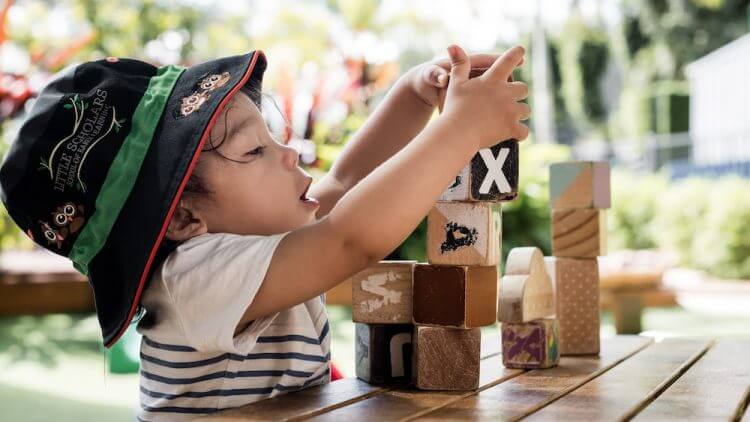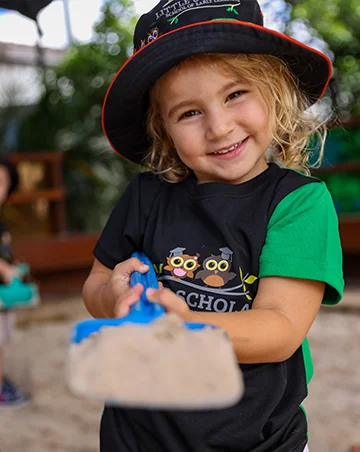For little humans, small changes can feel big. When it comes to transitioning rooms in childcare, some children will be excited to be more like the bigger children, but change can be more of a challenge to others.
Moving up at Little Scholars means changes to routines, new educators but also new opportunities to play and grow! We don’t move a child without thoughtful consideration from your child’s educators, and without preparing your child for changes to come.
So, how do we prepare your child for transition?
Carissa Haycock, Educational Leader at our Yatala campus, says this is something she’s very passionate about.
“Transitioning between rooms at our campus focuses more on a developmental/wellbeing factor than solely the children’s age,” Carissa says.
Some of the considerations taken whether to move a child or not include:
- Is this transition something that the family will be interested in? It is important to involve the families in this decision.
- How long will the child be in the next room? It’s not a great choice to move a child in April/May if they’re going to be in the same room next year with the same children. This can lead to changes in behaviour.
- How is the child in their current studio? Are they at a disadvantage in any way by remaining within their current studio?
Educators do a lot behind the scenes, Carissa says, to make transitions or considerations of transitions smooth. Educators at her campus prepare ‘Transition Letters’ for the educators in the next studio so they are aware of the child’s strengths as well as any special requirements.
They also provide the child ‘play dates’ in the studio to introduce them to their new educators and children, but visits are staggered for different periods of the daily routine before spending a full day in the new studio.
She also says educators can go and visit them while they’re on their play dates to see how they are going. Being excited for them and getting them to show their current educators something they have done or ask them about what they like about it can go a long way.
But Carissa says they also need to be aware if the child becomes upset, to bring them back to their familiar studio. We want the transition to be a positive experience for them and it’s not worth them being overwhelmed and remembering that the next time you take them in there…and they will remember!
Educators will often send the families updates on Kindyhub during the day letting them know how the transition is going. She says it’s helpful to include other children’s names and as well as their new educators’ names so the parents can talk about it with their children.
What can parents do it make it a smoother transition? Here are Carissa’s top tips:
- Talk about the transition at home with your child (the name of the studio and the educators within it)
- When dropping off or collecting your child, walk by the room and show them it, explaining that “this is going to be your new studio.”
- Understand that the transition may go smoothly for the first couple of weeks then your child might start becoming upset at drop-off. If this happens, allow them to settle in their familiar studio and the educators can later take them to their new studio. Pack your child’s comfort item or something familiar for them in case they need it during the day.
- Be honest with your child’s educators: if you don’t feel like your child is coping with the change, let them know and they can offer you tips or find another way to make the transition smoother.
Carissa also recommends not projecting any hesitations you might have about transitioning rooms on your child.
“It’s understandable for you to be worried about the transition but try not to talk about it in front of your child,” Carissa says. “Even if you think children aren’t listening, they could be, and they will often play on your own insecurities/worries.”
Your child’s needs will always come first at Little Scholars. Our first priority is the growth and development of your child. We nurture, teach, and guide your child to developing all the skills that will allow them to succeed in life, and we will support them every step of the way so they will flourish while they’re in our care.



